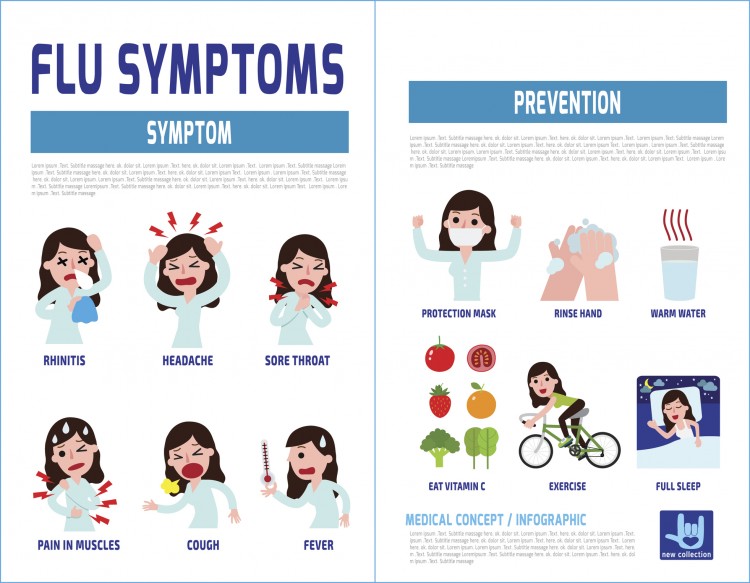Beans asked
How do you deal with the flu in 2018? I heard it is bad.
Answer
 The 2018 flu season has been reported to be more severe than usual. This is mostly due to the relative ineffectiveness of the 2017-2018 flu vaccination.
The 2018 flu season has been reported to be more severe than usual. This is mostly due to the relative ineffectiveness of the 2017-2018 flu vaccination.
Each year, the World Health Organization begins development on the annual flu vaccine well before the flu season arrives. They attempt to identify/predict which will be the predominate strains in the coming flu season based on the circulating strains around the world. In general, most annual flu vaccinations are about 40-60% effective.
Unfortunately for 2018, it doesn't appear that the flu vaccine has been well matched with circulating strains. Specifically, data suggests that the current vaccine is not properly matched with a particularly high circulating strain known as H3N2. In fact, on December 27, 2017 the CDC released an advisory referencing the particularly bad flu season and recommendations for potential antiviral therapy in certain individuals.
Most current reports predict the current flu vaccine is only about 10% effective against this H3N2 strain and only 33% effective overall. The lack of efficacy of this years vaccine necessitates the question of how to appropriately prevent and mange symptoms should you come down with the flu.
Vaccination Still Recommended
While the vaccination in 2018 may not be as effective as in years past, it still the best defense against flu. If you do get the flu after vaccination, studies have shown that it may reduce symptom severity. This can be especially beneficial in those with concurrent diseases such as pneumonia and bronchitis.
If you do not have insurance, the vaccination is relatively inexpensive. If you cannot afford to go to a doctor, you may be able to get your flu vaccination at your local pharmacy. The vaccination generally costs $20-$30, depending on location.
Getting The Flu And Symptom Control
In addition to the flu vaccine, there are other preventative measure you can take such as:
- Wearing a mask in high risk areas (e.g. hospital)
- Practice good hygiene
- Support your immune system by eating right, exercising and getting a full night's sleep
If you do get the flu, symptoms vary by individual but generally include:
- Fever
- Cough
- Sore throat
- Runny
- Body/muscle aches
- Headache
- Chills
- Fatigue
- GI Symptoms
Most individuals have fairly mild symptoms and they tend to resolve in 7-10 days. In most cases, treatment consists of rest and symptom management. If you already have the flu, manage the symptoms by:
- Getting plenty of rest
- Drink clear fluids such as water or broth to stay hydrated.
- Control symptoms such as body aches and fever with Tylenol (acetaminophen) or Advil (ibuprofen). For a stuffy nose, use of a humidifier or saline nasal spray might help. There are a variety of other over the counter medications such as cough suppressants, antihistamines etc... that can help to manage symptoms.

High Risk Individuals
While most individuals with heal from the flu within one to two weeks with traditional supportive care, many are at risk for more severe consequences. In fact, over 200,000 hospitalizations and 50,000 deaths are attributed to the flu every year. For the 2018 flu season specifically, the CDC recommends use of antivirals in the following individuals:
- Hospitalized
- Severely ill
- High-Risk patients (e.g. older than 65, chronic conditions such as COPD etc...) with suspected or confirmed influenza
Antivirals work best when started as soon as possible, within 2 days of symptom onset. However, they can be used up to 4-5 days after symptom onset in high risk individuals. Antivirals are not generally recommended for mild symptoms or non-high risk patients. They are expensive and generally only reduce flu duration by 1 day.




